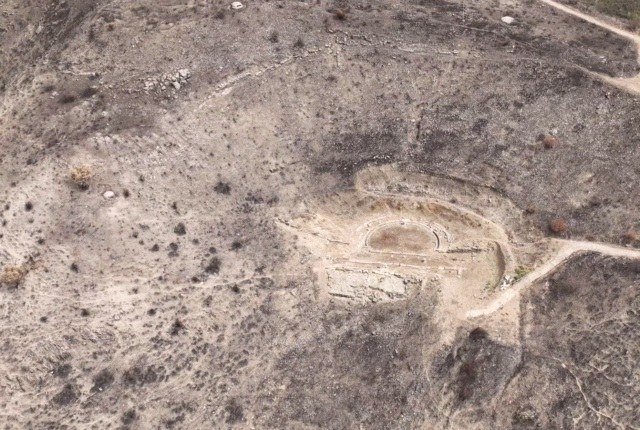Archaeologists of the University of Bologna went back to working in Phoinike, an ancient city in the Chaonia region, a portion of Epirus now within modern-day Albania. The excavations are led by Professor Giuseppe Lepore from the Department of Cultural Heritage (Ravenna Campus), on the Italian side, and Belisa Muka, archaeologist from the Albanian Institute of Archaeology of Tirana, on the Albanian side.
Students from the degree programmes in Classical Archaeology brought to light part of the agora and fascinating signs of the most ancient stages of the city (IV century B.C.E.) in the terrace located on top of the ancient theatre.
Ancient sources acknowledge the salient role of Phoinike, especially during the Hellenistic Era (between the III and the II century B.C.E.): indeed, it is here that in 205 B.C.E. the peace treaty between the Roman Republic and Philip V of Macedon was signed.
“This city, which remained continuously inhabited for nearly 2,000 years—from the 4th century B.C.E. to the Turkish conquest in the 15th century—was first investigated in 1926 by a Mission organised by the University of Bologna and led by Luigi Maria Ugolini, with support from the Ministry of Foreign Affairs", explains Professor Lepore. "Nearly a century later, research has resumed, once again with support from the University of Bologna, through the AlmaScavi project, the Ministry of Foreign Affairs, and the Albanian Institute of Archaeology in Tirana”.

